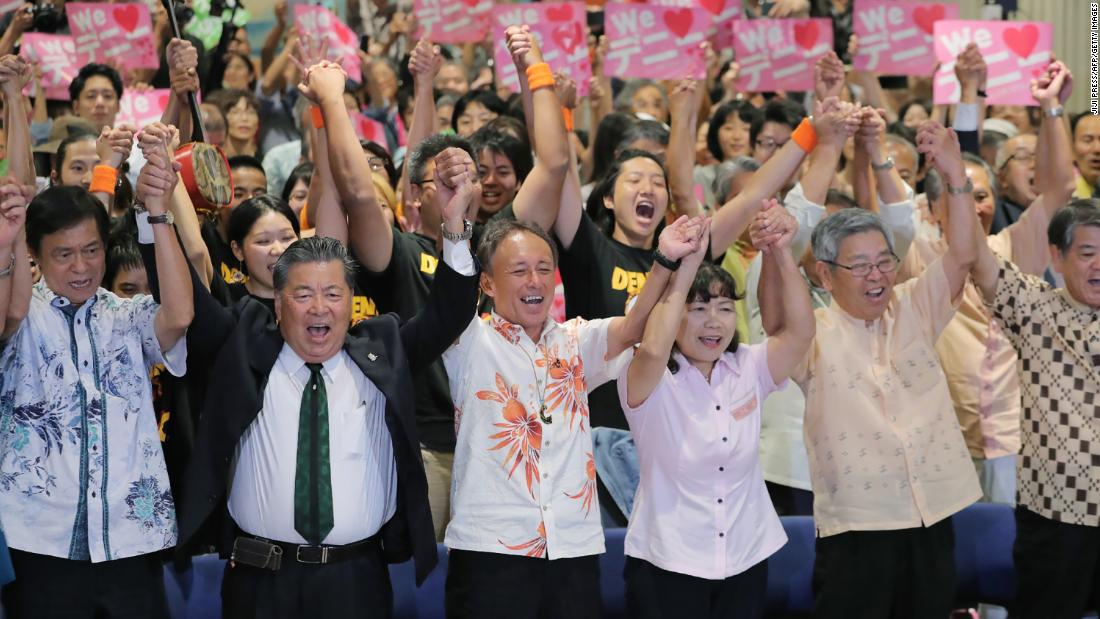
[ad_1]
Denny Tamaki won the elections on Sunday with 55.1 percent of the vote, easily defeating Prime Minister Shinzo Abe's Liberal Democratic Party (LDP) -supported Atsushi Sakima.
Tamaki said that a "new era" had begun in Okinawa on his official Twitter account, noting that the result reflected how much voters had "taken the elections seriously."
"This victory does not belong to Denny Tamaki, it belongs to everyone and the fight is just beginning," he said.
This victory further complicates the current military presence of the United States in Okinawa, which it has maintained since the end of the Second World War, despite the opposition of the inhabitants.
Located just east of the Chinese coast and a short flight from North Korea, the US bases in Okinawa are an important asset to Washington's military presence in the region.
Tamaki, whose mother is Japanese, is a well-known personality on local radio. He was elected to parliament in 2009. During his campaign for the governorship, he vowed to oppose the construction of new American bases on the island.
The Okinawa bases have been controversial for years in the midst of numerous reports of US military crimes, including rape and alcohol-related crashes.
In 1996, Washington and Tokyo agreed to transfer the US military base from Ginowan, a densely populated city, to a less populated area called Henoko, in the northern part of the island. The decision to move the base followed protests over the rape of a 12-year-old girl by three US servicemen.
But repeated protests over the planned location of Henoko and the years of political stalemate have delayed the construction of the new base. The Japanese government initially set a completion date for 2014, which has been postponed to 2019.
After Tamaki's victory was declared, cheers erupted at his campaign office, followed by a dance in the manner of Okinawa.
Tamaki's anti-American stance mirrors that of his predecessor, Takeshi Onaga, who died of pancreatic cancer in August while he was still in office.
Addressing a reporter after his victory, Tamaki said that Onaga had "risked his life" to stop building new US bases.
"I will firmly convey the will of the people of Okinawa to oppose the construction of the new base to the central government and the US government accordingly," he said.
Prime Minister Abe said his government "sincerely" accepted the result. "We continue to put our efforts for the development of Okinawa and ease the burden on the people of Okinawa."
But Cabinet Secretary-General Abe, Yoshihide Suga, said the Japanese government's plans for the basics have not changed.
CNN's Emiko Jozuka contributed to this report.
[ad_2]Source link